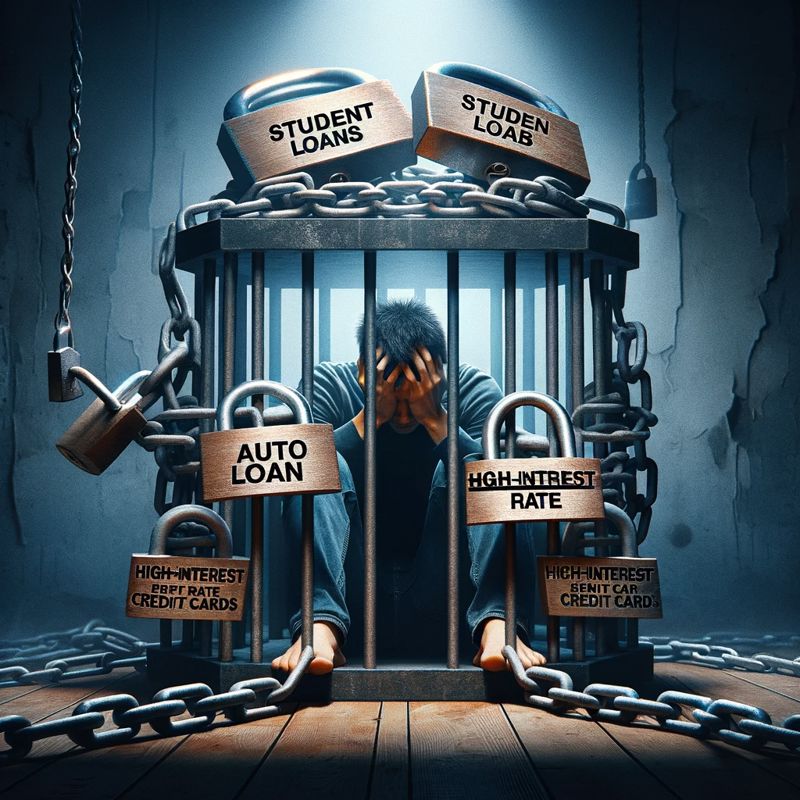The Tales of Interest
Imagine a teacher named Sarah earning a modest salary of $55,000 yearly. Yet, upon retirement, Sarah had amassed a net worth exceeding a million dollars. How? The answer lies in her understanding of a simple yet powerful concept: interest.
This isn’t a story of overnight riches or incredible luck; it’s a narrative of smart choices, consistent effort, and the fantastic power of interest to transform dreams into reality.
Understanding Interest: The Foundation
Interest, in its simplest form, is the cost of using someone else’s money or the reward for letting others use yours. There are three types: simple, accrued, and compound interest.
Simple Interest: The interest income you earn is figured on your principal. Imagine you invest $150,000 at a 5% annual rate for five years. You will earn $7,500 per year with a value of $187,500 after five years.
Accrued Interest: This is the unpaid interest on a loan or investment. For instance, a $450,000 loan at a 10% yearly rate accrues $3,698.63 in 30 days. It’s a crucial concept for both borrowers and lenders.
The daily accrual interest formula is Face value x (interest rate/365) x accrual period.
Compound Interest: How interest is calculated will affect your investment yield or what you earn. The more frequently the interest is compounded, the higher the yield or the rate of return on your investment.
This earning power is where the real magic happens. Compound interest is interest on interest. It’s what turned Sarah’s modest monthly investments into a million-dollar retirement fund. It’s not just about saving; it’s about investing smartly.
The compounding interest formula is P(1+r/n)^(nt). Fortunately, you don’t need to memorize the formula to understand the concept.
Let’s use the same $150,000 at a 5% annual rate for five years. If interest is compounded annually, you will earn $41,442 during the five years, a value of $191,442. If interest compounds monthly, you will earn $42,504 in interest with a total value of $192,504.
The Power of Compounding: Sarah’s Secret and More
Sarah didn’t have a high-income job or inherit wealth. What she had was an interest in compounding. She witnessed a financial metamorphosis by consistently investing a portion of her salary in dividend growth stocks and letting the reinvestment work for her over decades. This principle isn’t just for the wealthy; it’s accessible to everyone.
Consider Sarah’s teacher friend, John, who struggles with debt. John has student loans, an auto loan, and high-interest rate credit cards. Unlike Sarah, John is generally disinterested in living within his means and is always buying new things.
His spending spiraled due to rising interest rates on variable debt and a lack of understanding of how minimum payments work against you when you’re the borrower. He found himself trapped with no way to escape.
 John’s journey highlights the importance of literacy in managing spending.
John’s journey highlights the importance of literacy in managing spending.The Double-Edged Sword of Interest
As John learned the hard way, interest isn’t always your friend. It can be a cruel master regarding loans, especially with high or variable rates like credit cards. This type of debt can erode your wealth and freedom. On the flip side, controlled debt, like a fixed-rate mortgage or a business loan, can be a tool for growth.
Interest Beyond Money: The Intellectual Aspect
Interest is more than a financial term. It’s a state of mind. The desire to learn and grow intellectually can lead to happiness and success.
Research at the University of Arizona found that when we learn something new, like a language or musical instrument, we often seek challenges at the edge of our competence. Meaning not so hard that we are discouraged, but not so easy that we get bored. The sweet spot for motivation and learning is an 85% success and 15% failure rate.
Research at the University of California Davis discovered how participants’ curiosity (intrinsic motivation to learn) showed improved memory for information.
Disinterest: The Impact of Compounding
Just as interest is a state of mind, so is disinterest. Our attention suffers when we are not feeling engaged or no longer interested. This mindset impacts employees, managers, and business owners differently.
Imagine John spending classroom instruction time shopping on Amazon daily. His lack of focus in teaching his students has a compounding impact. His students are not learning, parents are upset, and the principal has a growing faculty problem, forcing a filed grievance.
Practical Steps to Leverage Interest
Start Early: The earlier you start, the more you benefit from compound interest and learning.
Stay Consistent: Regular, even small, investments of time and money can lead to substantial growth over time.
Understand Your Debt: Avoid high-interest debt and utilize strategic borrowing where it makes sense.
Nurture Curiosity: Expand your interests beyond finance and investments. The joy of learning can be as rewarding as financial gain.
Think of compound interest as a snowball rolling downhill, growing exponentially. Can you envision a future where financial freedom allows you to explore the world, indulge in your passions, and spend invaluable time with loved ones?
Addressing Common Misconceptions
Let’s debunk a few myths:
First, you don’t need much money to start benefiting from interest. Small, consistent investments can grow significantly.
Second, compound interest isn’t just for retirement accounts; it is beneficial in various savings and investment vehicles for individuals and businesses.
Finally, business owners are long-term investors who leverage the power of compound returns by reinvesting dividends from the business to fuel expansion and growth.
Expert Insights
Benjamin Franklin said, “Money makes money. And the money that money makes, makes money.”
Albert Einstein is credited with saying, “Compound interest is the eighth wonder of the world. He who understands it, earns it; he who doesn’t, pays it.”
John Bogle said is best, “Enjoy the magic of compounding returns. Even modest investments made in one’s early 20s are likely to grow to staggering amounts over the course of an investment lifetime.”
 Interest is your path to success and happiness.
Interest is your path to success and happiness.Conclusion and Action
Everyone can take advantage of compounding. The power of interest lies not just in understanding but in using it. You can transform your financial future like Sarah or struggle like John.
Interest is also wanting to give your attention to something (opportunity or problem) or wanting to be involved (leadership). Conversely, indifference to consequences and detachment from responsibility is why disinterest causes business disruption and loss events.
Remember, compounding is not on your side after criminals exploit your most valuable assets. Uptime and reliability are critical for many business operations, so financial losses compound quickly during security and system incidents.
We protect select U.S. businesses from the injustice of criminal exploitation and misunderstandings that cause business disruption, negative cash flow, and customer trust issues.
Answer these questions about you and your company today.
- What is the monthly cost of disruption and support of the recurring issues?
- How are disruption and expenses impacting business performance?
- How much more would you accomplish if we collaborated?
We seek out the people interested in succeeding faster with compounding knowledge. You can discuss your future decision-making path if you find actionable interest.
If you need to understand your financial exposure to business disruption or the required objective decisions, start today by reevaluating your approach to savings and investments. Harness the power of interest and ask yourself, how can you make the magic of interest work in your favor?
As a proud supporter of American companies, Certitude Security® is working diligently to define the specific points of truth about the financial impact of cyber risk. Together with business and technical leaders to facilitate essential asset protection priorities for companies throughout the United States.
We welcome your thoughts and questions. To initiate a dialogue, visit the Contact Us page to submit your message or use the Schedule button to coordinate a conversion.

